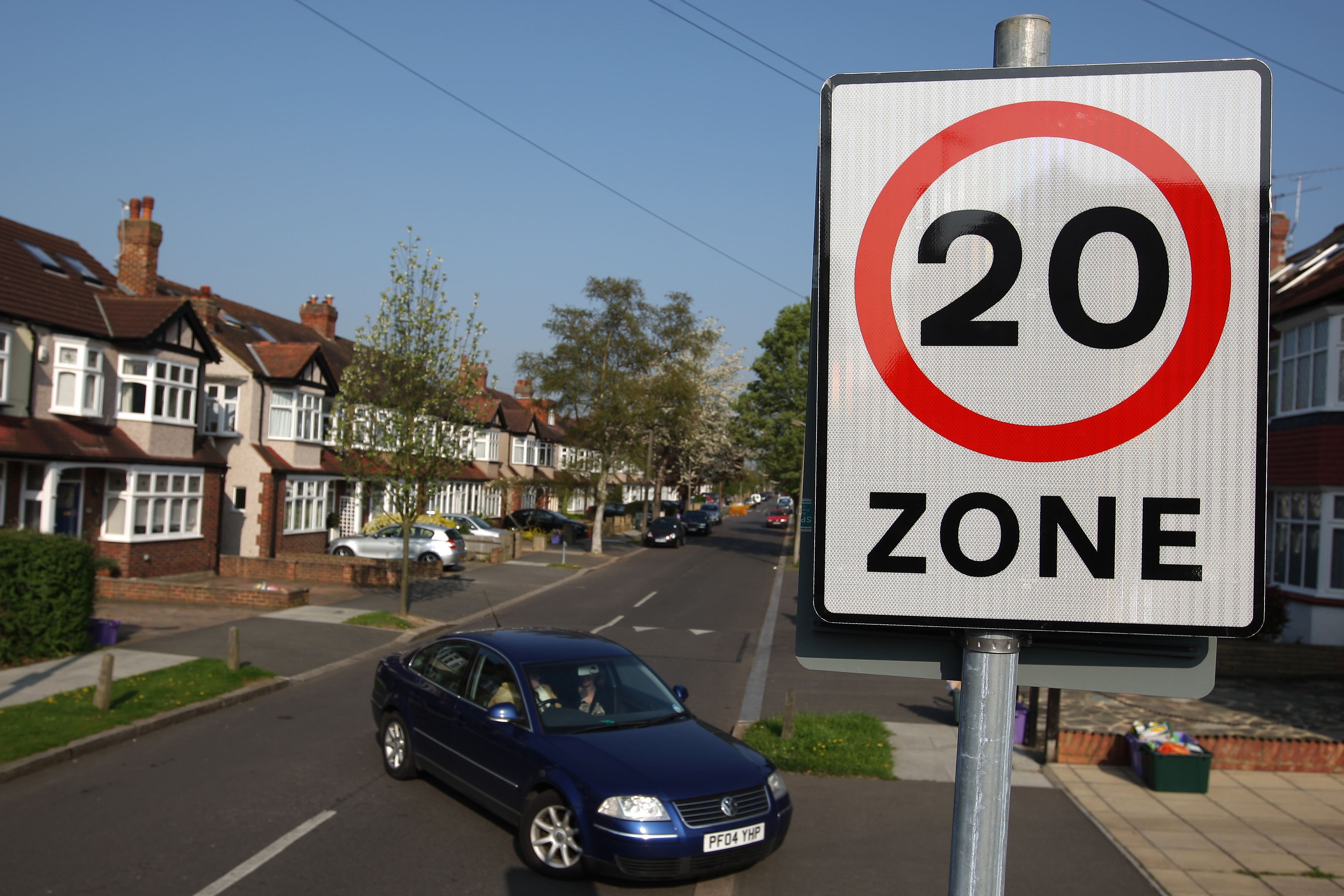Sunak ‘removing the alternatives’ to driving, say walkers and cyclists
Newspapers reported that a Plan for Motorists will be unveiled at the upcoming Tory conference in Manchester.

Rishi Sunak has been accused by walking and cycling groups of “removing the alternatives” to driving amid speculation he is preparing to curb 20mph speed limits.
Six leading active travel organisations claimed the Prime Minister will “make the roads worse” if he goes ahead with the move.
Several newspapers reported that a Plan for Motorists will be unveiled at the upcoming Tory conference in Manchester.
This will reportedly include limiting the ability of local authorities to impose new 20mph zones, restricting the number of hours a day cars are banned from bus lanes, and scaling back low-traffic neighbourhoods (LTNs).
The Guardian reported that the plan also involves reducing the ability of councils to impose fines for traffic infractions such as the misuse of yellow box junctions.
In a joint statement, the chief executives of walking and cycling organisations Bikeability Trust, British Cycling, Cycling UK, Living Streets, Ramblers and Sustrans said: “When ministers could be promoting public transport, cycling and walking as cheap sustainable options in a cost-of-living and climate crisis, they’re entrenching congestion and reliance on driving for short, local journeys.
“When the Government could respect people’s freedom to choose how they travel, it’s removing the alternatives.
“This is a plan that looks no further than one way of travelling and will make the roads worse for those occasions when people do need to drive.”
A Department for Transport (DfT) source described reports of the plan as “speculation”.
Downing Street was approached for a comment.
Earlier this month, Wales became the first country in the UK to drop the default speed limit from 30mph to 20mph for restricted roads.
This came after Wales scrapped all major road building projects due to environmental concerns.
On Thursday, Mr Sunak told ITV Cymru Wales: “I think imposing a blanket 20 mile-an-hour speed limit on areas is absolutely not right. It doesn’t reflect people’s priorities.
“People are dependent on their cars for their day-to-day journeys and these kind of blanket bans aren’t the right, proportionate approach.
“But also it comes on top of this other policy not to build any new roads as well.
“You take these things together, it seems like an attack on motorists and that’s rightly received the opposition that it deserves.”
The Prime Minister has pledged to crack down on “anti-motorist” policies and last week delayed the ban on the sale of new conventionally fuelled cars and vans from 2030 to 2035.
Nicholas Lyes, director of policy at the road safety charity IAM RoadSmart, said 20mph zones “have a role to play” but the “proliferation of blanket limits without physical changes to road layouts means compliance is often poor”.
Local authorities are “usually best placed” to decide the location of the zones but there “is an argument” to strengthen guidance on how that happens, he added.
RAC head of policy Simon Williams said: “While we support the use of 20mph limits being used where they are needed most, such as outside schools, on residential streets and in urban areas where there are lots of pedestrians, implementing them in widespread fashion may unnecessarily lengthen journey times by slowing down traffic, and possibly even increase congestion.
“We need councils to strike the right balance between making our roads safer and ensuring the smooth flow of traffic, in all its forms.
“We need to see the detail of the PM’s plan to see whether what’s proposed will really help with that.”
An RAC-commissioned survey of 3,102 motorists indicated that the most common reason drivers give for exceeding 20mph limits is because they think the restriction is inappropriate for that particular road.
The poll was conducted by research company Online95 between April and May last year.
The Welsh Government is predicting its change to 20mph speed limits will save up to 100 lives and 20,000 casualties in the first decade.
First Minister Mark Drakeford said there is “incontrovertible” evidence that “driving more slowly in built-up urban areas saves people’s lives”.
A DfT-commissioned study published in November 2018 found 20mph limits in residential areas were supported by the majority of residents and drivers.
The research said cutting limits from 30mph to 20mph resulted in a reduction in average speed of less than 1mph, but vehicles travelling faster before the change generally lowered their speed more than slower vehicles.
The report concluded there was no evidence of a significant drop in the number of crashes and casualties after the introduction of 20mph limits.
Bookmark popover
Removed from bookmarks